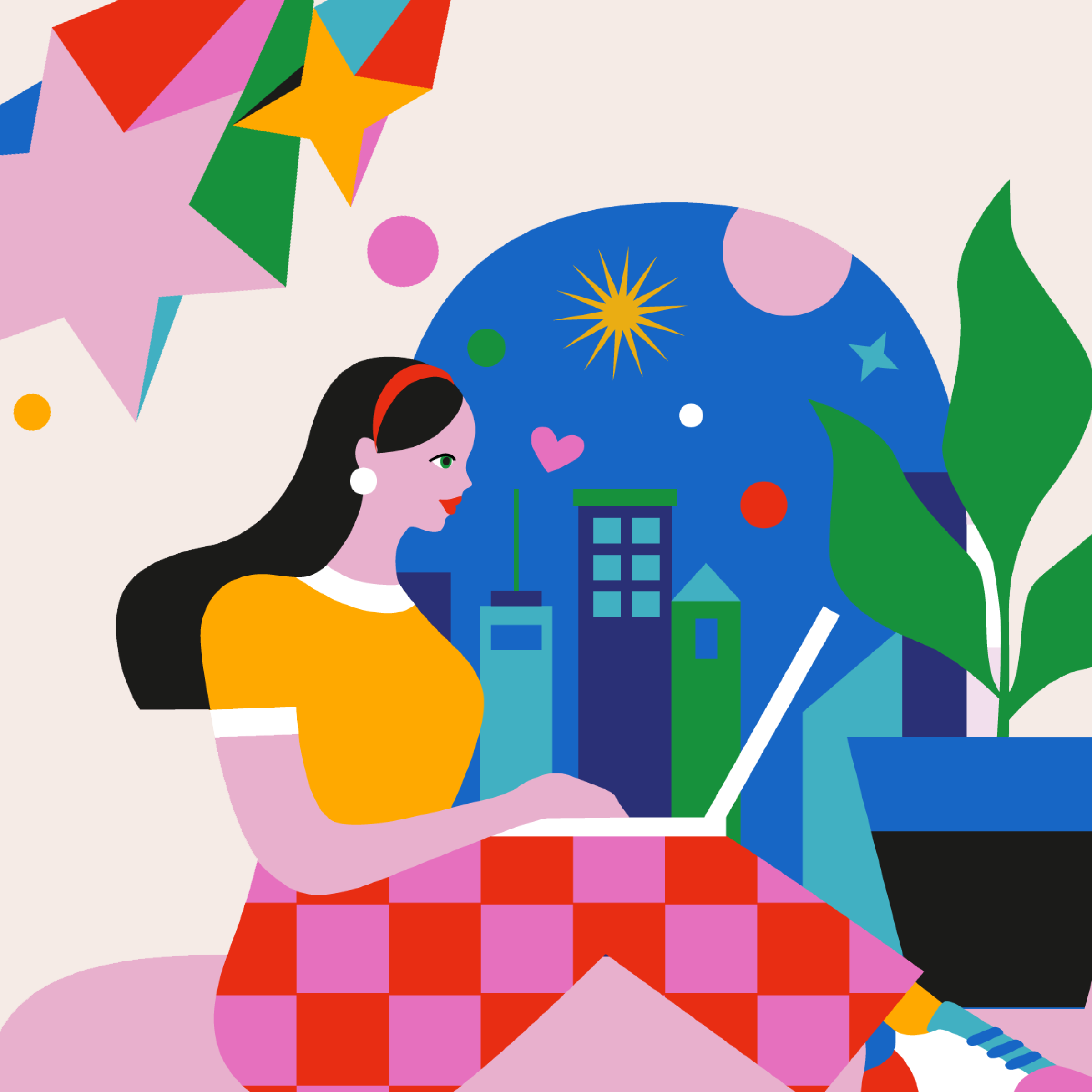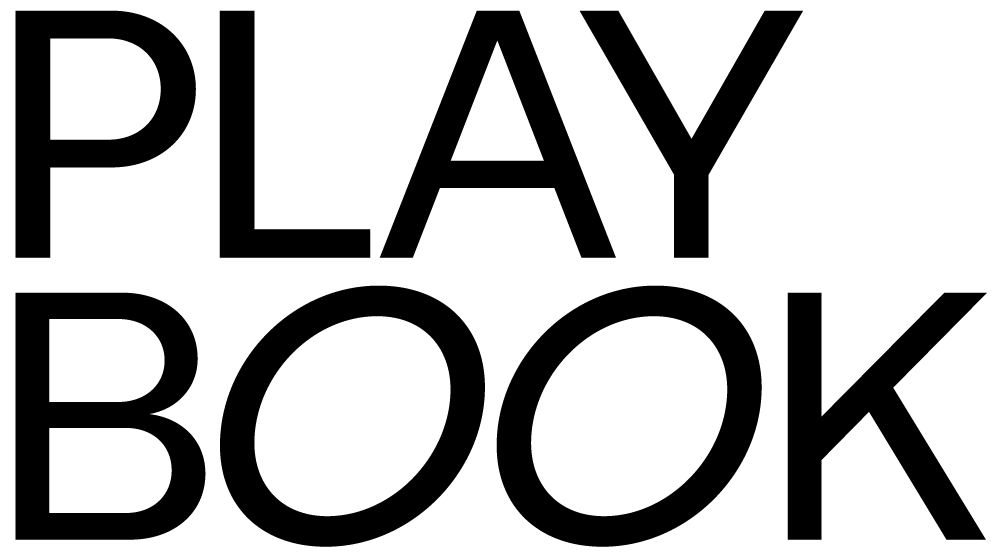
Entering a digital design interview can be an exciting yet daunting experience.
These interviews — which are structured similarly to those in other design fields — usually include a mix of inquiries, ranging from your design journey and skillset to your problem-solving abilities and creative inclinations.
This structure is meant to give interviewers a holistic view of your capabilities as a digital designer.
Whether you’re a seasoned professional or a budding designer, preparing answers to these questions can boost your confidence for your next big interview.
So, stay tuned as we delve into the top 20 questions that will help you navigate the complexities of a digital design interview.
1. Can you describe your design process from concept to completion?
With this question, the interviewer wants to understand whether you have a systematic, methodical approach to design projects.
Your answer to this question should cover how you approach each stage of the design process, including initial research, concept development, prototyping, iterative design based on feedback, and final delivery.
For example, you could describe a project where you started with user research, developed personas, sketched initial concepts, created wireframes, and then developed high-fidelity prototypes, incorporating client and user feedback at each stage.
2. How do you stay updated with the latest digital design trends and tools?
This question is designed to help the interviewer gain insight into your commitment to professional development and staying current in a rapidly evolving field.
In your answer, name any specific resources you use to stay on top of current trends, such as design blogs, podcasts, social media accounts, or conferences and where you learn about how to use new tools like online courses or workshops.
For example, you could mention how following design thought leaders on social media led you to adopt a new tool like Figma for collaborative design or how attending a specific conference introduced you to a new trend in web design.
3. Can you discuss a challenging project you worked on and how you overcame obstacles?
If the interviewer asks you this, they want to know about your problem-solving skills, adaptability, and resilience.
Your answer should contain details of a project you have worked on that presented unique challenges, your approach to solving those challenges, and the successful outcome.
For instance, you could talk about a project with a tight deadline where you used agile methodologies to quickly iterate on design concepts, successfully meeting the deadline without compromising on quality.
4. How do you prioritize and manage your workload, especially when facing tight deadlines?

When you come across this question, the interviewers want to know about your time management, organizational skills, and ability to work under pressure.
In your answer, mention specific strategies for prioritizing tasks, such as Eisenhower’s Matrix, and the tools you use for time management.
For example, you could explain how you used a project management tool like Asana or Trello to break down a project into smaller tasks, prioritizing them based on urgency and importance.
5. Can you explain the importance of user experience (UX) in digital design?
User experience (UX) is a core skill in digital design, so when you hear this question, the interviewer wants to gauge your understanding of UX principles and their application in design.
Your answer should demonstrate your knowledge of how UX impacts the effectiveness of a design in meeting user needs and achieving business goals.
For instance, you could describe a project you participated in where user testing led to significant changes in the design, greatly improving user engagement and satisfaction.
6. How do you approach receiving and implementing feedback on your designs?
Openness to feedback, a collaborative mindset, and the ability to iterate designs based on input are crucial skills in the world of design, and this question indicates that the interviewer wants to delve deeper into these skills.
In your answer, cover your process for integrating feedback, balancing it with design goals, and adjusting designs appropriately.
For example, you could share an experience where client feedback required a major design pivot and how you successfully incorporated their suggestions while maintaining design integrity.
7. What software and tools are you most proficient in for digital designing?
With this question, the interviewer seeks to understand your technical proficiency and familiarity with industry-standard tools, so your answer should mention the software and tools you use. Don’t forget to include examples of how you’ve used them effectively.
For example, you could discuss your proficiency in Adobe Creative Suite for graphic design, Sketch for UI design, and your recent learning curve with motion design tools like After Effects.
8. How do you ensure your designs are accessible and inclusive for a diverse audience?
Awareness of and commitment to inclusive and accessible design practices are essential in today’s design industry.
In your answer, make sure you cover your understanding of accessibility standards (like WCAG) and how you incorporate them into your designs.
For instance, you might describe a web design project where you ensured compliance with WCAG 2.1 guidelines using tools like color contrast checkers and screen reader testing.
9. Can you give an example of how you’ve successfully collaborated with a team on a design project?

Teamwork and communication skills are crucial for digital designers, who usually work in a collaborative environment with team members, clients, and other stakeholders.
Make sure your answer provides examples of collaborative projects, your role, and how you integrated ideas with the team.
For example, you could describe a cross-functional project where you worked with developers, marketing specialists, and other designers, highlighting how open communication and regular stand-ups helped align the project’s vision and execution.
10. What is your approach to creating designs that are both aesthetically pleasing and functional?
The ability to balance visual appeal with usability and practicality is key in digital design, and that’s exactly what the interviewer is asking about with this question.
In your answer, make sure you explain how you ensure designs are not only visually appealing but also meet functional requirements and user needs.
For example, you could share a project where you had to balance a client’s desire for a visually striking design with the need for easy navigation and clear information hierarchy.
11. How do you balance creativity with technical constraints in your designs?
Design projects often take place within certain limitations. By asking this question, the interviewer wants to assess how you adapt and innovate within these limitations.
Your answer should describe your approach to navigating constraints like platform requirements or performance issues — for instance, you could discuss a mobile app design where you balanced creative elements with the constraints of device performance and varying screen sizes.
12. Can you share a design project you are particularly proud of and why?
Passion, creativity, and a sense of accomplishment in your work are the hallmarks of a successful digital designer. The interviewer wants to know whether you truly have that spark of passion for your work.
Ahead of your interview, prepare a description of a specific project, your role in it, the design choices you made, and the impact of the project.
For instance, you could highlight a branding project where your design significantly contributed to increasing brand recognition and customer engagement, explaining why it was fulfilling for you.
13. How do you approach designing for different platforms (like web vs. mobile)?
As a digital designer, you’ll likely need to be versatile and have a good understanding of platform-specific design requirements, and this is what the interviewer wants to know about with this question.
Your answer should cover your understanding of the unique requirements of different platforms and how you tailor your designs accordingly.
As an example, you could describe a project where you had to adapt a web design for mobile, focusing on responsive design principles and touch interactions.
14. What do you think are the most important elements of effective digital design?
With this question, the interviewer wants to get an understanding of your familiarity with key design principles and their application.
Your answer should cover elements like usability, aesthetics, functionality, and user engagement, such as a UI design project where the balance of color, typography, and user flow led to an effective and engaging user experience.
15. How do you measure the success of your designs?

This question aims to gain more information about your approach to evaluating design effectiveness and impact.
Discuss the criteria you use for success, such as user feedback, usability testing, analytics, and business outcomes, providing examples where relevant.
For example, you could share how you used A/B testing on a landing page design to measure and compare user engagement and conversion rates, leading to data-driven design improvements.
16. Can you discuss a time when you had to adapt your design based on user feedback or testing results?
Digital design is user-centered, and the interviewer wants to know more about your approach to feedback and iterating, as well as your adaptability.
Provide an example of how you adapted a design based on user input and the positive outcome of these changes — such as revising a web interface after user testing revealed usability issues, resulting in a more intuitive and user-friendly design.
17. What is your experience with designing for various branding or marketing campaigns?
Digital design is fundamental in marketing and ranges from creating social media graphics to animation and video, so the interviewer wants to know more about your experience in integrating design within broader marketing strategies.
In your answer, share examples of projects where your designs aligned with and enhanced branding or marketing objectives.
For instance, you could describe a campaign where you designed digital assets that cohesively conveyed the brand’s message across various platforms, contributing to a successful campaign.
18. How do you handle disagreements about design decisions, either with team members or clients?
With this question, the interviewer wants to know about your conflict resolution skills and ability to work constructively with differing opinions.
Describe the effective communication strategies you use and how you navigate disagreements to find common ground.
For example, you might share a scenario where you and a client had differing views on a design aspect and how you reached a mutually satisfying solution through compromise and presenting a design rationale.
19. In your view, how does digital design contribute to a company’s overall success?
Design plays a strategic role in business success because it directly influences user experience, which shapes brand perception.
Demonstrate your understanding of how digital design can drive business goals using an example, such as an e-commerce website redesign that led to increased user engagement and sales, showing the direct impact of thoughtful design on business metrics.
20. How do you approach learning and integrating new design technologies and methodologies?
Design technologies and methodologies are constantly evolving, and it’s essential for businesses that their designers stay on top of the latest trends. With this question, the interviewer wants to assess your eagerness to evolve, learn, and incorporate new skills.
Describe the ways in which you stay up-to-date on and integrate new tools into your workflow, like how you learned a new prototyping tool and implemented it in a project to improve the fidelity of your prototypes and streamline the feedback process.
Ace your digital design interview
Preparing answers to these questions will get you one step closer to your next dream digital design role.
Being well-prepared demonstrates your professionalism and dedication to your craft, and you’re sure to leave a good impression on the hiring manager.
But remember, it’s not only your interviewers who ask the questions — you get to ask them, too.
Asking smart questions shows your engagement and interest in the role and company and helps you assess if the job is the right fit for your career goals and values.
To further refine your interview strategy, check out our guide on graphic designer interview questions to ask employers.
Equip yourself with the knowledge to stand out in your next digital design interview!
